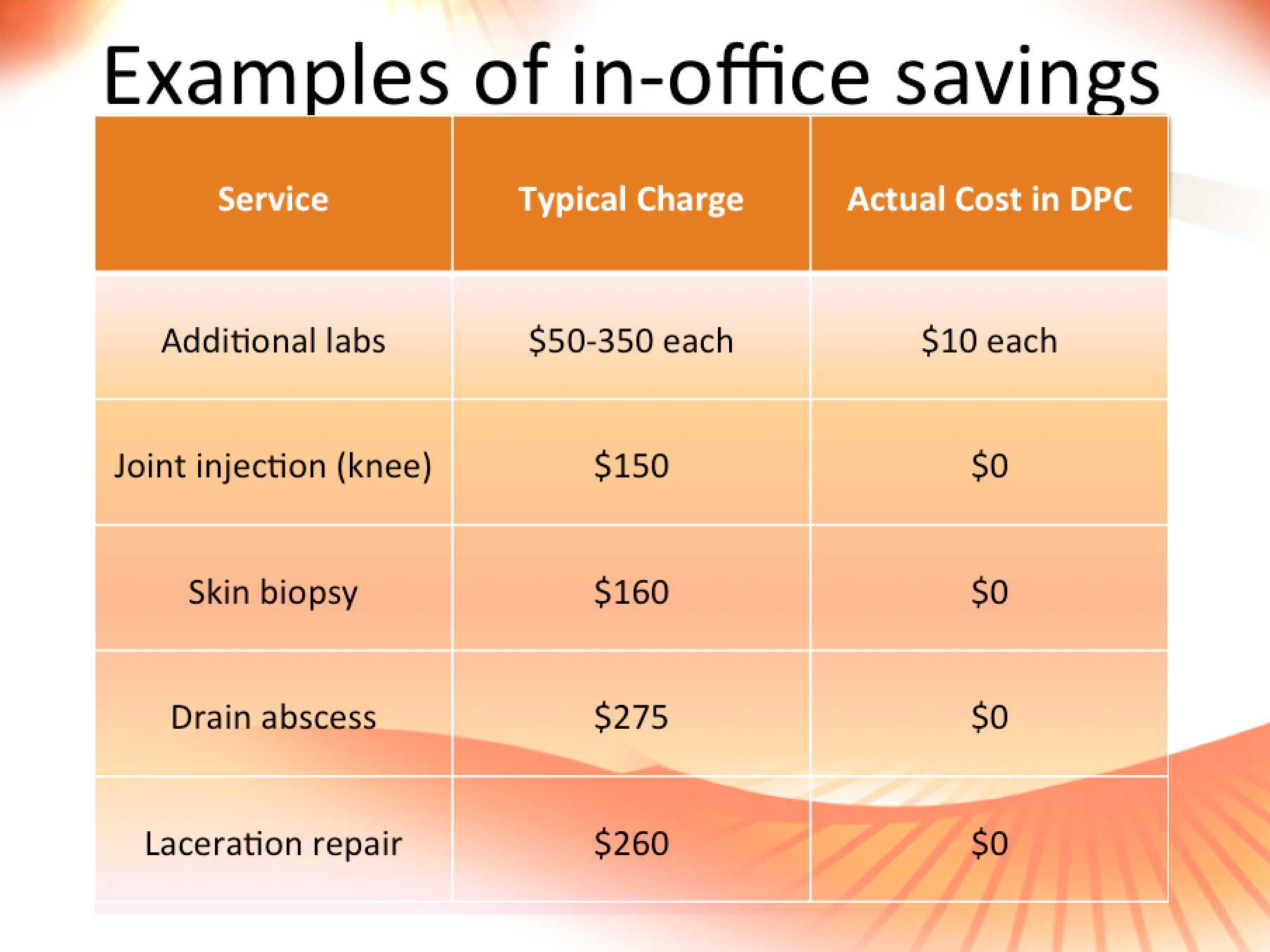Direct primary care (DPC) is a simple business model in which doctors provide basic health care services in exchange for a monthly patient fee. Thanks to more doctors getting fed up over increasing amounts of regulatory paperwork, the niche market is growing. As of 2014, over 4,400 doctors in the US have taken on this alternative method of concierge medicine – a significant increase from just 146 in 2005.
According to Dr. Lee Gross, co-founder of Epiphany Health in Florida, primary care is relatively inexpensive to deliver when you discount the costs associated with submitting claims and getting paid by third-party payers. Delivering it directly allows his practice to provide affordable services for the masses:
Since DPC typically does not accept any forms of insurance, many may be wondering how it can thrive now that the Affordable Care Act requires individuals and employers to purchase qualified (and in most cases not-so-affordable) health insurance. Interestingly, the ACA does endorse DPC. The law allows for carriers to sell catastrophic policies that include benefits outside of primary care.
So, if a patient purchases this “wraparound” plan in conjunction with seeking care through a DPC practice, the individual mandate is fulfilled.
The problem, however, is that most insurers have not taken the initiative to offer these types of plans, since DHHS Secretary Sylvia Mathews Burwell is responsible for determining what benefits must be included to for them to be deemed as “qualified.”
The clarification has yet to happen. But when it does, the DPC market will most likely expand.



